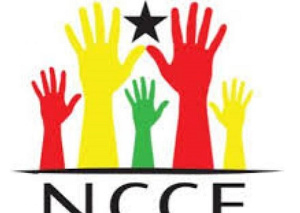- General News
- Crime & Punishment
- Politics
- Regional
- Editorial
- Health
- Ghanaians Abroad
- Tabloid
- Africa News
- Religion
Politics of Sunday, 6 October 2019
Source: ghananewsagency.org
Government urged to resource NCCE, EC, and the media
The Local Governance Network (LOGNet) has called on government to resource the National Commission for Civic Education, the Electoral Commission, and the media to educate citizenry ahead of the upcoming district level elections and referendum.
The Network said intensified education on December District Level Election (DLEs) and referendum would increase public interest in the process and possibly lead to a higher voter turnout even beyond the 40 per cent threshold.
This was contained in a communique issued in Accra by LOGNet signed by Mr Christopher Dapaah, the Acting National Coordinator at LOGNet, Mr Louis Acheampong of the Social Support Foundation, Mr Farouq Braima of the Peoples Dialogue and Mr Maxwell Banu of the TEERE.
The Network said efforts and resources should not be over-concentrated on the referendum to the neglect of the District Level Election of Assembly Members and Unit Committee Members.
It said the media especially those operating at the local level and within the districts should be sensitised and educated on the matters relating to the DLEs and the Referendum to improve their understanding on the issues towards providing accurate information and education to the public.
It said the challenges faced by Persons with Disabilities should be addressed before and during the election process.
This, the Network said, required stakeholder engagement with the Ghana Federation of Disability Organisations.
The fora resolved that irrespective of the outcome of the referendum there was the need to enforce existing legislations and introduce additional ones, when the need arise, to deepen democratic, fiscal and administrative decentralisation.
The Network said legislation should be introduced to fund candidates in order to reduce monetisation and the high cost of campaigning, which creates allegiance to Financiers and political parties.
It said participants urged Members of Parliament to overwhelmingly support and amend Article 243(1) of the Constitution to allow popular election of Metropolitan, Municipal and District Assemblies Chief Executives as many citizens had expressed in interest in that regard.
Entertainment










